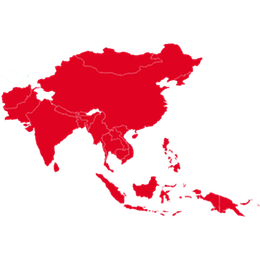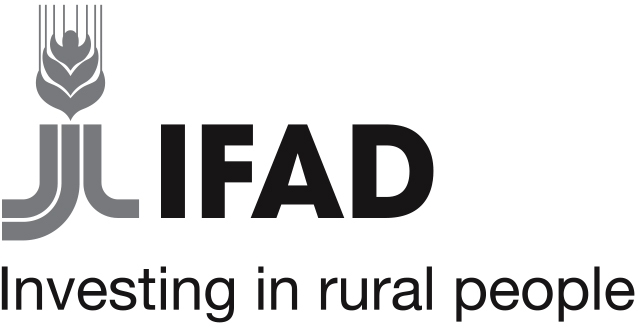Access to markets and finance for farmers in Sri Lanka
"It is vital to create a good market and reasonable price for farmers’ produce in the process of enriching Sri Lanka as an agricultural country and strengthening the economy of the farmers."
BACKGROUND
Sri Lankan farmers working on a small scale may not have the business skills necessary to grow from producers into agro-businesses. The NADEP project used a combination of training, support, technology and micro-finance to help its beneficiaries join value chains and make investments for the longer term.
WHAT’S INVOLVED
Access to markets
The project established partnerships within the private sector and with farmers’ organizations to promote the inclusion of small-scale producers within a wider value chain, helping to ensure they get a good price for their products.
Innovative technology
A Market Information System (MIS) was developed to hold and collate data from across the project. It incorporated an SMS communication service that allowed farmers in the field to request timely information from the project staff and vice versa.
Micro-credit and access to finance
A special low rate of 6.5 percent was offered to producer beneficiaries who were looking to invest in working capital for consumables, such as seed and fertilizer, and for assets like machinery and construction.
EXPLORE THIS SOLUTION
The NADEP project can offer
- Experience of providing a multi-faceted business support service over several years
- Insights on the use of technology such as Android apps and a centralized data system when working with farmers in the field
- Experience in rolling out micro-credit to rural users

Countries involved
Sri Lanka
Project partners
IFAD, Presidential Secretariat of Sri Lankan Government
Project dates
February 2010 – December 2017
Share this solution
Bookmark this solution
BookmarkShow Full Solution
Summary
The National Agribusiness Development Programme (NADEP) was set up in Sri Lanka with two primary goals - to help smallholder farmers increase their incomes through participation in marketing chain development and linkages, and to provide access to micro-financing and youth training for better employment.
The programme assures farmers a guaranteed price for their precious agri-produce by linking them up with leading agri-business companies with support for on-farm development activities. Ultimately this results in higher productivity and better income at farmer level. NADEP is also linked with the banking sector of Sri Lanka to provide credit facilities to beneficiaries at a concession rate (6.5%) to further support their development as agro entrepreneurs.
NADEP’s overall goal is to contribute to poverty eradication and sustainable livelihood improvement of Sri Lanka’s rural poor farming community, preserving the essence of traditional agriculture while empowering farmers as agro-entrepreneurs. The initiatives were created to strengthen their economy and boost their livelihood.
Challenge
There were various challenges facing the programme, including:
- Small and decreasing size of land-holdings which is uneconomical for agribusiness activities
- Lack of affordable short-term working capital to finance regular agricultural seasonal needs
- Poor approach towards rural development advocates, state monopoly
- Market information / know-how inaccessible for producers
- Limited effectiveness and sustainability of past investments in productive infrastructure, markets and research and extension
- Lack of higher level organizations and partnering commercial companies and enterprises
- Limited access to assets, skill development and employment opportunities
- High level of post-harvest losses (poor processing, storage and handling facilities etc.)
- Lack of transport and collection / marketing facilities
- Limited knowledge of issues relevant to market and marketing
Solution
The programme collaborated with private sector entities, such as companies, partnerships and sole proprietors or Farmer Based Organizations (FBOs) to set up partnership ventures in value chain development and marketing linkages. These were targeted towards the smallholder agri-producers. Special attention was paid to creating more job opportunities for youth and women.
Micro credit facilities at a low interest rate (6.5%) were established to support working capital (seeds, fertilizer, etc) and fixed assets (machinery, equipment and civil construction etc.) for farming and other income-generating activities.
A NADEP-specific MIS (management information system) was set up and is now in use, with further developments planned. It integrates programme-based information (M&E data and fund disbursement), lessons learned, finance, inventory, task management, payroll management, leave management, microfinance data, etc. The system includes some highly innovative features, including an Android application which allows enhanced and efficient data collection in real time at the field-level.
NADEP also developed an SMS communication and broadcasting system to reduce the communication gap between project personnel and field-level farmers. NADEP can send messages directly to the farmers and farmers can request information from NADEP via SMS. The service is linked to an automated SMS feedback system as part of the integrated MIS (management information system).
Results
Thanks to the NADEP programme, farmers are able to sell products without the intervention of other intermediaries, and the value addition of agricultural produce has increased in selected marketing chains. The number of beneficiaries accessing credit or loan products increased, with the introduction of the disaster business recovery loan scheme and operationalization of the revolving fund.
Performance under the microfinance and youth training has improved, with three financial products (including 4P credit) available and accessible to the intended target group. This includes linking more than 4,000 youth to PFIs.
Some specific outcomes of the project:
- Increase of 20 to 30 percent in average net household income among smallholder farmers through participation in marketing chain development and linkages
- Some 39,667 households reached, representing 69% of the overall target
- 50 percent of targeted households raised above the poverty line
- Rural poverty reduction and improvement of livelihoods of 57,900 poor households
- 25 percent reduction in prevalence of chronic child malnutrition
Lessons learned and potential for replication
The experience of establishing 4P credit is still relatively nascent in the Sri Lanka context, and building trust across partners is a longer-term process.
Small producers continue to identify a lack of short-term working capital to finance their regular agricultural seasonal needs. In general, the financial products on the market are currently inaccessible at the current market interest rates, so there is scope to pilot agricultural seasonal loans to meet short-term working capital needs.
The current process of disbursing the lines of credit administered by Central Bank of Sri Lanka / Regional Development Department to the end client (beneficiary) is lengthy, typically requiring 4-5 weeks, and which increases the risk of default on loans that are intended for the purpose of time-bound agricultural production.
Farmers and producers are not fully aware of the need for monitoring their income derived from production sales vis-à-vis their expenditure requirements.
The preferred private sector partner would be experienced, financially secure and established companies, as opposed to small (new) companies or NGOs/CBOs with limited market experience and capacities.
Last update: 09/08/2018

